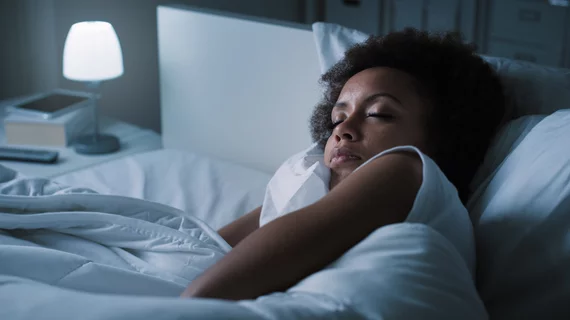New MR imaging reveals quality sleep is fundamental to recovering from brain injuries
Getting a good night’s sleep is key to recovering from a traumatic brain injury, new MRI evidence revealed recently.
Oregon Health & Science University researchers utilized a new MRI technique that measures changes in the brain’s perivascular space—part of the organ’s waste clearance system—for their findings.
They discovered those who slept poorly showed more evidence of enlarged spaces surrounding the brain’s blood vessels and more post-concussive symptoms.
The study was undertaken in veterans and has “huge” implications for the military as well as the general population, lead author Juan Piantino, MD, assistant professor of pediatric neurology at the OHSU School of Medicine, detailed in the Journal of Neurotrama.
"This study suggests sleep may play an important role in clearing waste from the brain after traumatic brain injury—and if you don't sleep very well, you might not clean your brain as efficiently,” Piantino added in an OHSU news item published Friday.
Piantino and co-investigators enrolled 56 veterans into their study performed at the VA Puget Sound’s Mental Illness Research, Education and Clinical Center between 2011 and 2019.
They received backing from multiple government organizations, including the National Heart, Lung and Blood Institute and U.S. Department of Veterans Affairs.
In addition to their traumatic brain injury insights, the group says their MRI technique may help diagnose other neurological problems.
"Longer term, we can start thinking about using this method to predict who is going to be at higher risk for cognitive problems including dementia," Piantino remarked Friday.
Read additional insights from their research here.

